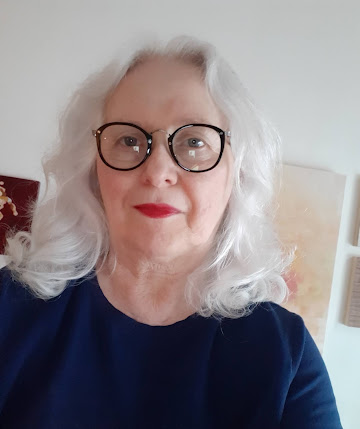Talking Poetics
It seems that I tend to write ‘around’ something before I actually get to the poem and it’s often the case that I’m trying to answer a question, an old one, a new one, in order to see how I feel. I try to get under that answer to find out if there’s anything else, and if I’ve expressed the element that’s most important to me. Answers I view as fluid, and the question serves as only a point of departure.
I often go back to my ‘reject’ file and can sometimes find an idea to work with in a new way or at least see why the thing never really made it as a poem. I think that most poets do that. To me it’s helpful not only as a source for new work, but to see the changes and progress in one’s practice.
Coming from a background in visual arts, it’s common for a poem to begin with an image or an object, something I see that moves me. If it’s an object, for example, I’ll describe maybe its shape and purpose, etc. I try to keep the surface simple while I watch what happens in the poem, and if I’m very attentive I can push it deeper. It helps if there’s some sort of emotional connection to the object.
I want the poem to be relatively clear to the non-poet reader, have them be able to take away some part of my offer. I use both concrete and abstract nouns, whatever seems to suit the poem. I don’t mind ambiguity. I think that a reader can make an imaginative leap or two. And it is a thrill for me to hear what they’ve imagined.
In one poem I used the sound “clic…clic…clic” which one reader imagined to be the click of my internal camera, another thought it was the sound of a spoon hitting the edge of a bowl. I wrote it as the sound of a gas stove being lit. All the readings worked for the poem.
The poem on the page:
I enjoy concrete poetry. A relatively recent example that took my breath away, is Derek Beaulieu’s piece in Arc, Summer 2019 issue. I love “Debths” by Susan Howe and was amazed to learn that this book was first published when she was seventy-six!
Usually, I pay particular attention to breath for breaking a line or stanza. When I haven’t used punctuation, it is deliberate, as I want the reader to use their own rhythm for the poem and possibly read it differently if they choose to read it more than once. If I can get it to work without it sounding awkward, I try to have the last line of a stanza stand on its own and at the same time, carry over to the next stanza’s first line—that line reading as complete on its own as well. This example is from a poem in Cloud Game with Plums (my chapbook published by above/ground press in July 2020).
Is this my net—
Am I throwing it
to catch my life—
what matters
From this distance I
can’t tell
if you are walking toward
me
or just walking
I enjoy the layers it creates but only do that for one or two stanzas, otherwise I think it could become monotonous. And, it takes some time to understand what hurts and what helps a poem’s content, in terms of layout and line break.
It is experimentation, the idea of, let’s see what happens if…, that keeps me writing.
And, once in a while, I find a poem just lying there on the sidewalk, waiting to be
picked up.
Rose Maloukis, poet and visual artist, holds a BFA from Wayne State University, Detroit, Michigan. Her poetry was short-listed for the 2015 Montreal International Poetry Prize. She won 2nd place in Geist’s erasure poem competition. Her chapbook, CloudGame with Plums was published by above/ground press. And, she has a poem forthcoming in The Fiddlehead.



